Technology Investment Sustains Moldmaker During Tough Times
When the mold manufacturing industry was affected by the downturn in the economy several years ago, injection mold and die manufacturer Lens Tool and Mould Ltd.
When the mold manufacturing industry was affected by the downturn in the economy several years ago, injection mold and die manufacturer Lens Tool and Mould Ltd. (Windsor, ON) was able to stay afloat by offering high quality EDM surface finishes for other moldmakers and job shops thanks to a wise investment in high-speed CNC and EDM technology before times were tough.
In business since 1965, Lens Tool and Mould Ltd. manufactures molds and dies ranging from 60 to 1,000 tons. The company also provides CNC machining, EDM with HQSF, electrode cutting and ultra precision wire EDM services in markets such as automotive, medical and other industrial
tooling.
Founder Frank Godinek initially specialized in automotive lens molds back in the 1960s before branching out into molds like automotive roof racks and other automotive interior/ exterior parts. He turned over the reins to his son Tamas Godinek in 2009 and remains involved with the business,
helping out where he is needed. Tamas grew up in the shop, sweeping floors and cutting the grass before attending St. Clair College to learn the trade.
While the company is on the smaller side with eight employees including office staff, programmers and machine/toolmakers, Godinek notes that Lens Tool was able to purchase the best in machine and tool equipment before the economy began to suffer—which he maintains sustained them
when shops around him had to close their doors.
“Most of our equipment is Makino and similar high-speed machines,” he states. “We became really well known for our EDM speaker grill mold work—featuring thousands of intricate core pins—several years ago, which we do with the Makino HQSF. Companies approach
us for re-polish and retouchup work. We manufacture the electrodes, put it in our EDM
machine and re-burn the part area. The customer gets the job back for try-out and the part runs much better with no sticking. Our specialty work has picked up a lot this year.”
He attributes this not only to the equipment and technology used on the shop floor—but also to the background and knowledge of his staff, some of which have been with the company for more than 30 years. Godinek spent approximately a year researching EDM equipment before deciding upon the Makino. “We never had an EDM in our shop and we kept spending $100,000 to $200,000 worth of work per year to an EDM job shop, so I convinced my father that we needed to invest and get our own EDM department,” he recalls.
"I traveled to different shops and looked at a variety of machines. I spoke to many people about capabilities, customer support and quality—all qualifications which resulted in our d ecision to purchase the Makino. It was probably the best decision we ever made because we have made a name for ourselves with that machine.”
Related Content
-
How to Use Scientific Maintenance for More Accurate Mold and Part Troubleshooting
Discover how adopting scientific maintenance approaches helps improve mold lifespan, minimize failures, and optimize production outcomes.
-
MMT Chats: Eliminating the Noise to Stay Focused on the Customer
Metro Mold & Design joins me to discuss the value of the 80/20 rule as a business strategy, its talented cross-functional team, the role of automation in mold building and molding, and the continuing impact of COVID-19.
-
Leading Mold Manufacturers Share Best Practices for Improving Efficiency
Precise Tooling Solutions, X-Cell Tool and Mold, M&M Tool and Mold, Ameritech Die & Mold, and Cavalier Tool & Manufacturing, sit down for a fast-paced Q&A focused on strategies for improving efficiencies across their operations.

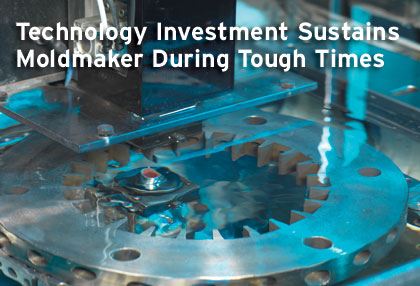
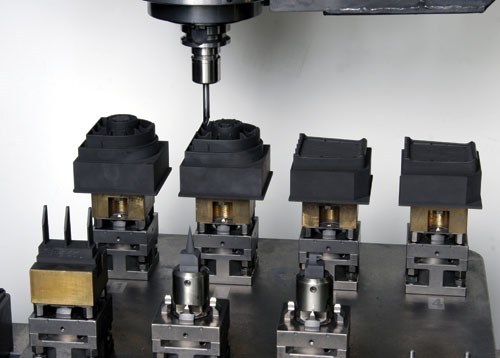
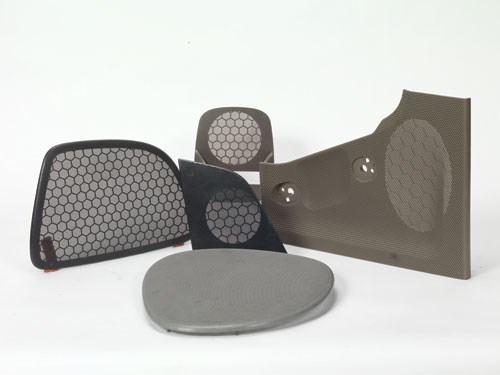
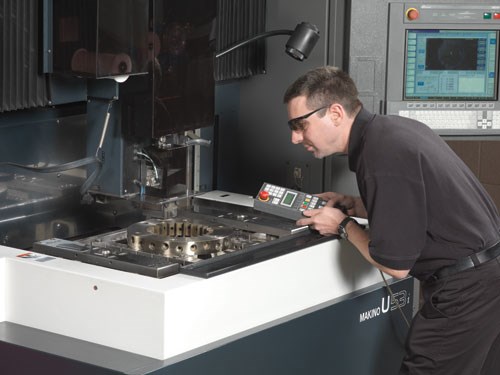
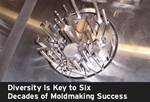









.jpg;maxWidth=300;quality=90)



